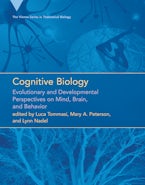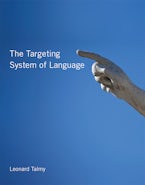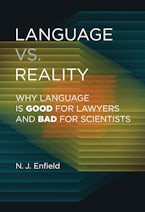A fascinating exploration of the conceptual systems that emerge when a neural network is trained to predict the properties of objects. Rogers and McClelland show that incremental, error-driven learning leads to internal distributed representations that explain a whole variety of empirical phenomena. Their network exhibits remarkable common sense in the way it generalizes, and distinctly human frailty in the way its knowledge disintegrates when it is physically degraded. Conceptual tendencies that many researchers assume to be innate are produced by the interplay between error-driven learning and the higher-order statistical structure of the set of facts that the network learns. The book uses very little technical jargon and the reasoning is clear, detailed, and compelling.
Geoffrey Hinton, FRS, Canada Research Chair in Machine Learning, Department of Computer Science, University of Toronto
This important book pushes connectionism into the true heartland of cognitive science: human semantic cognition. Through an elegant weave of empirical reviews and specific PDP models, topics in adult cognition, cognitive development, and neuropsychology are brought together and underlying computational principles revealed. Destined to become an influential landmark in the field, the book will be essential reading for a wide range of cognitive scientists.
Mark Johnson, Director of the Centre for Brain and Cognitive Development, University of London
This is a fascinating book. It explores the ability of PDP models to simulate many behavioral phenomena thought to arise from properties of semantic and conceptual structure. These phenomena include: differentiation of taxonomic structures in development, the basic level of categorization, conceptual coherence, illusory correlations, inductive projection, conceptual change, domain specificity, and the influences of causal knowledge and intuitive theories. Both fans and foes of PDP approaches will want to study this ambitious and innovative application of connectionist learning models.
Frank C. Keil, Professor, Department of Psychology, Yale University
This book deals with one of the central questions in cognitive science: What is the nature of semantic knowledge? The computational framework that Rogers and McClelland propose, while elegant in its simplicity, provides deep insights into the development (and loss, with brain damage) of category structure, causal knowledge, and semantic organization. In providing both a mechanistic processing account as well as an interpretation of the principles underlying the mechanism's properties, Rogers and McClelland explain a wide range of complex phenomena that have hitherto resisted a unified account. This is a very important book.
Jeff Elman, Professor of Cognitive Science, University of California, San Diego












